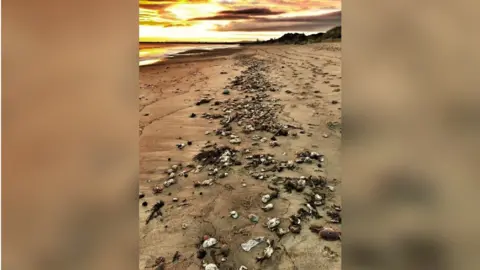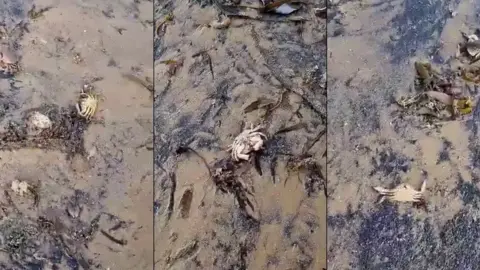Teesside crab deaths: Pollution ruled out as cause
 Paul Grainger /PA Wire
Paul Grainger /PA Wire Thousands of crabs and lobsters found dead on beaches along the North East coast were not killed by chemical pollution, the Environment Agency said.
In October, there were multiple reports of mass carcass wash-ups between Hartlepool and Robin Hood's Bay.
Investigators previously ruled out sewage as a cause, as well as undersea cabling, seismic survey activity or dredging.
A spokeswoman said the focus will now turn to disease or "a natural event".
Sarah Jennings, operations manager from the Environment Agency, said the multi-agency investigation has been a "top priority".
She said: "We've used both traditional and innovative screening methods to analyse samples of water, sediment and crab looking for traces of contamination.
"We've screened for over 1,000 potential chemical contaminants but found no anomalies that could lead to an event of this scale."
 Carl Clyne
Carl ClyneMs Jennings said seabed surveys had found only crabs and lobsters had been affected.
Mike Gubbins from the Centre for Environment, Fisheries and Aquaculture Science said: "We are continuing to investigate whether an aquatic animal disease has caused this mortality.
"Our Fish Health Inspectorate have been analysing shellfish samples collected from the area for listed and other non-listed diseases, but none have been detected so far.
"We will continue to work to try and find answers for the local community."
The risk to human health from dying or dead crabs is "low", the Environment Agency said, although people are being advised to avoid affected areas of the beach where possible and not to touch or consume any of the animals.

Follow BBC North East & Cumbria on Twitter, Facebook and Instagram. Send your story ideas to [email protected].
